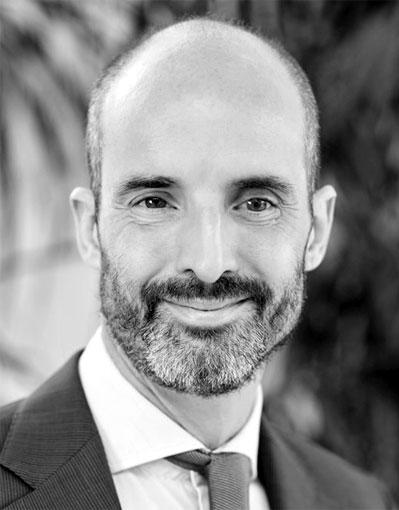Dig into contents of each half-day module,
find the closest scheduled workshop to your location, and apply.
WORKSHOP AGENDA AND CONTENTS
PROGRAM
| Duration |
3:30 h
|
Learning
goals |
- Wider understanding of the academic and industry near roles of a Tech Transfer Office;
- Learning of common challenges and best practices in roles, processes, tools and methods for the key activities performed by a Tech Transfer Office;
- Understanding of best practices in how to enable continuous improvement of a Tech Transfer Office organization;
- Enable benchmarking of own organization to learn where improvements can be made.
|
Covered
topics |
- Setting the scene: The holistic role of a Tech Transfer Office and it’s stakeholders - learnings and framework from a high innovation performing Nordic region;
- Promoting new ideas and collaborations - Challenges and best practices in creating market and Raw Materials industry alignment;
- IP inflow generation – Challenges and best practices in capturing early tech ideas;
- Initial assessment –Prioritizing and assessing efforts in IP portfolio;
- Challenges, best practices and success criterias in TTO governence, roles and continuous learning.
|
Hands-on
activities |
- Active interactions on reflections regarding each participants TTOs experiences;
- Based on framework and success criterias of : how does your TTO stack up, and what can be further developed?.
|
What you need to
know to maximize
your learning |
- Familiarity with own TTO organization and stakeholders.
|
SPEAKER Kent Mrozek
 |
Kent Mrozek
LTU Business

|
|
Kent Mrozek is a senior business developer at LTU Business. He has worked with tech transfer for over 10 years and is one of the founders of our core method ‘Innovation Due Diligence’, the core process used to manage the idea flow. Prior to joining LTU Business, Kent has started several successful businesses based on research from Luleå Technical University.
LTU Business AB is the largest innovation management company in northern Scandinavia, currently with 35 consultants. In addition to being the official Technology Transfer Office and Industry Liaison Office for Luleå University of Technology, we serve clients from both private and public sector. Each year LTU Business performs analyzes of over 200 ideas sprung from the academy, and additionally 50-100 from external companies and organizations. |
PROGRAM
| Duration |
3:30 h
|
Learning
goals |
- Be aware of your raw-materials-related tech transfer environment and set objectives accordingly
- Learn about the different variables involved in technology transfer within the area of raw materials
- Learn about the different valuation methods
- Prepare an effective pitch for your business idea
|
Covered
topics |
- Factors to be kept in mind when valuating technology (Technology, Market, Legal, Strategic)
- Valuation of IP (Cost method, Market method, Options method, Income method)
- Types of investors
- Preparation of a pitch (the questions you should be answering)
|
Hands-on
activities |
- Exercise: Valuation of IP and licensing (real case)
- Case study: Business opportunity in technology transfer (real case)
|
What you need to
know to maximize
your learning |
- Work in or be interested in Tech Transfer
- Be market oriented
- Have an overall idea of your organisation’s IP
|
SPEAKER Unai Calvar Aranburu
 |
Unai Calvar Aranburu
Tecnalia Ventures

|
|
Unai Calvar Aranburu has worked at Tecnalia since 2007 in different positions: as researcher in the field of Innovation Policies, where he provided strategic advice to public institutions on the definition, implementation and assessment of innovation policies, strategies and programmes that promote technology-based competitiveness and generate optimal environments for economic and social development; as visiting researcher at the Joint Institute for Innovation Policies; prior to this he worked closely with the Basque Government in different projects related to the development of the Information Society in the period 2007-2013.
He is experienced in the design, development and management of workshops related to transferring knowledge, especially within the ICT sector. He has participated in the design of the Basque Government’s strategic plan for the Information Society, defining programmes and initiatives which aim at bridging the digital gap in society and SMEs. |
PROGRAM
| Duration |
3:30 h
|
Learning
goals |
-
Understand IP exploitation strategy;
-
Key factors to identify opportunity of spinout vs license;
-
Helping raising investment for spinout;
-
What companies look from R&D collaboration / license;
-
Advanced Negotiation Skills.
|
Covered
topics |
-
Different exploitation paths;
-
Licensing options; when is better to license and criticalities; legal aspects;
-
How to negotiate R&D collaboration and license: from start to end;
-
When is better to spinout and criticalities;
-
How to help raising private investment; how to engage and interact with investors.
|
Hands-on
activities |
-
Sample License Agreements;
-
Sample Collaboration Agreements;
-
Role Play various Negotiation Scenarios.
|
What you need to
know to maximize
your learning |
|
SPEAKER John Whelan, Ph.D.
 |
John Whelan, Ph.D.
Commercialization Manager
Trinity College Dublin

|
|
Currently ICT Commercialisation Manager at Trinity College, University of Dublin. Founder of a three tech start ups two of which raised 7 figure venture capital rounds. One of these stratups, Alatto traded for 9 years with sales averaging over €1m per year.
More recently consultant to Vodafone Ireland and then in 2008 became Technology Transfer Case Manager at Trinity College, Dublin responsible for commercialisation of ICT research. While In Trinity I set up and ran Trinity College's start-up accelerator LaunchBox.
While Executive Director of Blackstone LaunchPad at Trinity College, Dublin designed and secured European funding to implement Trinity’s Connected Health accelerator “Validator”. BSc in Applied Physics and Electronics, and PhD in Geophysics. |
The workshop will feature small classes of selected attendees who will bring their own IP cases to maximize learning. It is mandatory to attend to all the three modules. Workshops are free of charge for EIT Raw Material Partners; 100€ access fee for externals. The workshop will be replicated in various locations in EU until end of 2020. All workshops attendance costs are eligible under EIT RawMaterials funded KAVAs (e.g. Up-scaling projects). To know more about this read this FAQ








